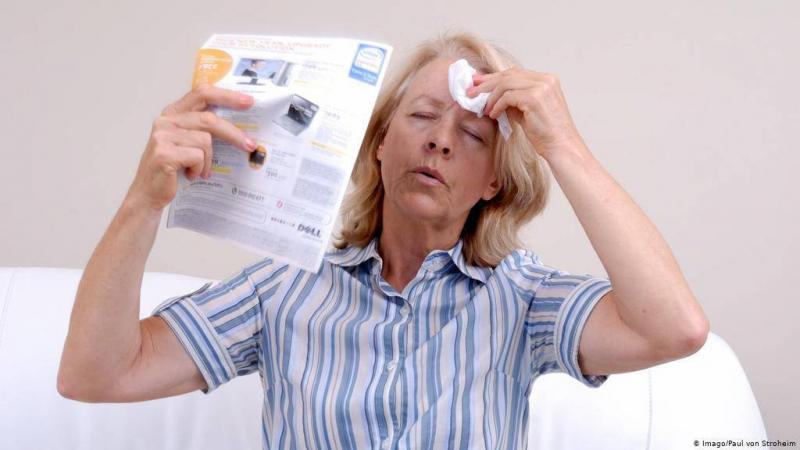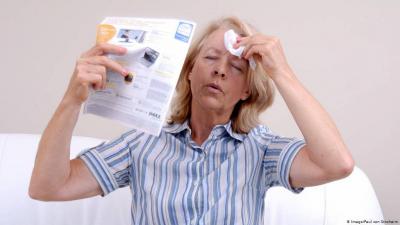Some European experts indicate that high blood pressure is often ignored as part of menopausal symptoms in aging women, warning that this could increase the risk of heart problems. This warning was included along with recommendations on how doctors can help middle-aged women avoid heart issues in the future, in a document by the European Society of Cardiology, published on January 27 in the European Heart Journal.
According to the document, doctors should intensify the screening for high blood pressure in middle-aged women, as up to half of women may develop high blood pressure before the age of sixty. However, accompanying symptoms, such as hot flashes and heart palpitations, are often attributed to menopause.
Dr. Angela Maas, the lead author of the document and director of the Women's Heart Health Program at Radboud University Medical Center in Nijmegen, Netherlands, stated, "High blood pressure is often referred to as a male issue, but it is frequently mischaracterized as stress or a symptom of menopause in women." She adds, "We know that blood pressure receives less attention in women compared to men, which puts them at greater risk for atrial fibrillation, heart failure, and stroke, all of which can actually be prevented."
Dr. Maas explained that prevention should begin early, and doctors should evaluate women differently than men, not relying solely on blood cholesterol levels. She noted, "This will allow us to classify middle-aged women as at higher or lower risk for cardiovascular diseases."
Additionally, researchers pointed out that pregnancy complications and early menopause could increase a woman's risk of heart disease. For instance, preeclampsia, which is characterized by high blood pressure and swelling, is associated with a fourfold increase in the risk of heart failure and high blood pressure, and doubles the risk of stroke later in life. In fact, women entering menopause before the age of forty are more likely to suffer from heart disease; each year of early menopause is linked to an increased risk of up to 3%.
Researchers mentioned that autoimmune inflammatory conditions such as rheumatoid arthritis and lupus may also elevate heart disease risks during menopause. Dr. Maas stated, "There are several life stages where we can identify subgroups of women at high risk for heart disease. If high blood pressure is not addressed when women are in their forties or fifties, they will face issues in their seventies when treating high blood pressure becomes more difficult."
It is worth noting that this document provides guidelines on managing heart health during menopause and after pregnancy complications, as well as other conditions like breast cancer and polycystic ovary syndrome, emphasizing the vital role of adopting a healthy lifestyle and diet.
According to the document, while hormone therapy can alleviate menopausal symptoms like night sweats and hot flashes in women over 45, cardiovascular risk factors should be evaluated before starting treatment. It also offers advice for transgender women, as Dr. Maas mentions that they need hormone therapy for the rest of their lives and that their risk of blood clots increases over time. Therefore, they should always be encouraged to reduce risks through a healthy lifestyle.
Dr. Maas added, "Women can assist their healthcare providers in heart disease prevention efforts and early diagnosis by informing them about their symptoms, such as complex pregnancies, early menopause, and monitoring their blood pressure."




